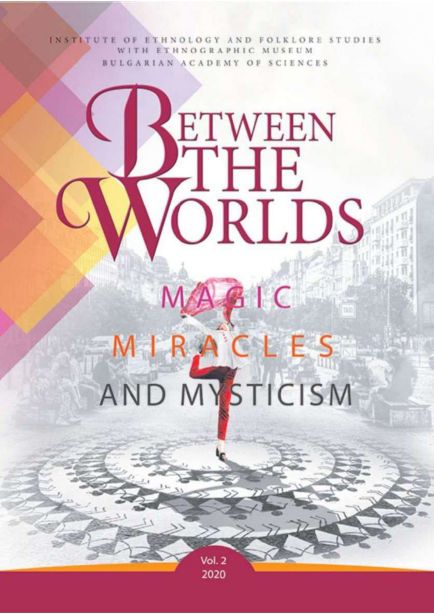The Concept of Good and Evil in Jewish Folklore and Mysticism
The Concept of Good and Evil in Jewish Folklore and Mysticism
Author(s): Vladimir JanevSubject(s): History, Anthropology, Social Sciences, Jewish studies, Customs / Folklore, Ethnohistory, Social history, History of Judaism, Cultural Anthropology / Ethnology, Culture and social structure
Published by: Институт за етнология и фолклористика с Етнографски музей при БАН
Keywords: Judaism; ethics; folklore; mysticism; tradition
Summary/Abstract: The ethical concept in Jewish folklore and mysticism reflects its heritage from the ancient Middle–Eastern civilisations (Egypt, Syria, Babylon). There are examples of certain myths which were created before the existence of Judaism, and which were eventually somehow ‘adopted’ and preserved (as Jewish myths) until today. In time, these myths changed along with the historical processes of modernity and secularism in Judaism. Another relevant topic in Jewish mysticism was the lack of women theologians until the second half of the XX century. In fact, in traditional Judaism women were not allowed to study theology and mysticism.The ethical concept in Jewish folklore and mysticism reflects its heritage from the ancient Middle – Eastern civilisations (Egypt, Syria, Babylon). There are examples of certain myths which were created before the existence of Judaism, and which were eventually somehow ‘adopted’ and preserved (as Jewish myths) until today. In time, these myths changed along with the historical processes of modernity and secularism in Judaism. Another relevant topic in Jewish mysticism was the lack of women theologians until the second half of the XX century. In fact, in traditional Judaism women were not allowed to study theology and mysticism. The ethical concept in Jewish folklore and mysticism reflects its heritage from the ancient Middle – Eastern civilisations (Egypt, Syria, Babylon). There are examples of certain myths which were created before the existence of Judaism, and which were eventually somehow ‘adopted’ and preserved (as Jewish myths) until today. In time, these myths changed along with the historical processes of modernity and secularism in Judaism. Another relevant topic in Jewish mysticism was the lack of women theologians until the second half of the XX century. In fact, in traditional Judaism women were not allowed to study theology and mysticism.
Journal: Between the Worlds
- Issue Year: 2/2020
- Issue No: 2
- Page Range: 161-171
- Page Count: 12
- Language: English

